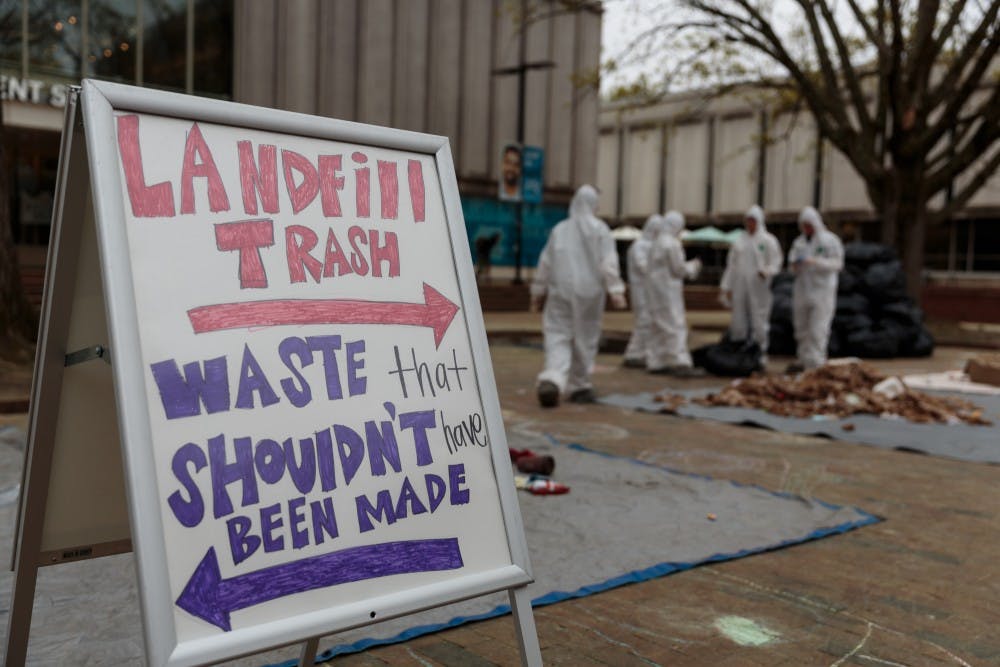A bike that powers a blender for vegan smoothies, a trash sorting game and a scoop of local Maple View ice cream are all attractions at this year’s Three Zeros Day, which will be held in the Pit on Monday, October 7 from 11 a.m. to 1 p.m.
The Three Zeros Environmental Initiative is the University’s commitment to achieve net zero greenhouse gas emissions, net zero water usage and zero waste to landfills. Launched in fall 2016 by former Chancellor Carol Folt, the initiative has celebrated its progress with Three Zeros Day every year since its creation.
The Chief Sustainability Officer for UNC, Brad Ives, was in charge of the Three Zeros Environmental Initiative until he left his position this August. At this point, it is unclear if the University will appoint a new chief sustainability officer in his place.
Three Zeros has not yet released a formal plan to reach their sustainability goals and does not plan to share one on Monday, however, all ongoing projects are listed on their website.
The Three Zeros Environmental Initiative came after the Board of Trustees decided that UNC would focus on greenhouse gas neutrality rather than being coal-free by 2020, which was a former sustainability initiative.
At Three Zeros Day, students will have the chance to learn more about sustainability from Three Zeros employees, and will have the chance to submit ideas for new sustainability projects on campus.
“We need every single Tar Heels’ help to accomplish these goals,” Amy Armbruster, research and outreach manager for Three Zeros, said. “Throughout the course of the Three Zeros Environmental Initiative, what Three Zeros Day has really meant is that we can hear from our students, faculty and staff about their great ideas to push the initiative forward.”
Viktor Agabekov, project coordinator for UNC Energy Services, said the initiative has managed to lower greenhouse gas emissions by about 19 percent since 2007, reduce potable water intensity by at least 63 percent and decrease per capita waste sent to landfills by 27 percent from 2001 to 2007.
He also said the University was recently ranked first in the U.S. for sustainability according to the Times Higher Education impact ranking program.




